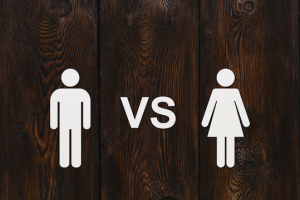-
Are women more prone to varicose veins than men?
Posted on August 21, 2017 by Vein Admin in naples veins, varicose vein facts, varicose veins It’s true that sex – that is, the biological differences between men and women – play a role in the development of varicose veins.
It’s true that sex – that is, the biological differences between men and women – play a role in the development of varicose veins.Nearly a quarter of all adults suffer from varicose veins, usually in the lower limbs. While it’s a myth that men aren’t at-risk for developing them, studies have shown women are more affected by varicose veins than men — and are as much as four times more likely to get them.
Varicose veins can be hereditary but also occur in people whose jobs require prolonged standing in one position, such as store clerks, hairdressers, and nurses. In non-moving legs, the venous blood drains so slowly that it accumulates, stretches the venous walls and tiny valves, and causes the valves to fail. Those veins then twist and swell with pooled blood, sometimes causing pain and discomfort.
For women, pregnancy can cause or worsen the problem. Weight gain puts increased pressure on veins from the abdomen, and hormonal changes can weaken the valves within veins. Increased progesterone is viewed as a significant factor in the development of varicose veins, especially for women who have been through more than one pregnancy, according to a 2009 study published in the journal Acta Dermatovenerologica Croatica.
Some varicose veins may develop from straining during the delivery of a child. Straining during bowel movements can also raise intra-abdominal pressure, which can cause varicose veins in anal veins – also known as hemorrhoids.
Experts say women are more likely to seek treatment for varicose veins during the early stages for cosmetic reasons, while men tend to wait on treatment until the symptoms become uncomfortable. That approach can be a particularly risky; in severe cases, varicose veins can slow blood circulation through a region of the body so greatly that the tissue in it dies of oxygen starvation.
That’s why it’s important to remove the affected veins or close them with the appropriate medical procedure, such as sclerotherapy, microphlebectomy or endovenuous ablation, so blood can drain normally though the body using alternate pathways.
Vein Specialists of southwestern Florida, with offices in Fort Myers and Bonita Springs, provides state-of-the-art services for the treatment of varicose veins, spider veins, and other vein disorders. To contact a vein specialist, visit http://www.weknowveins.com, or call 239-694-VEIN (8346).





